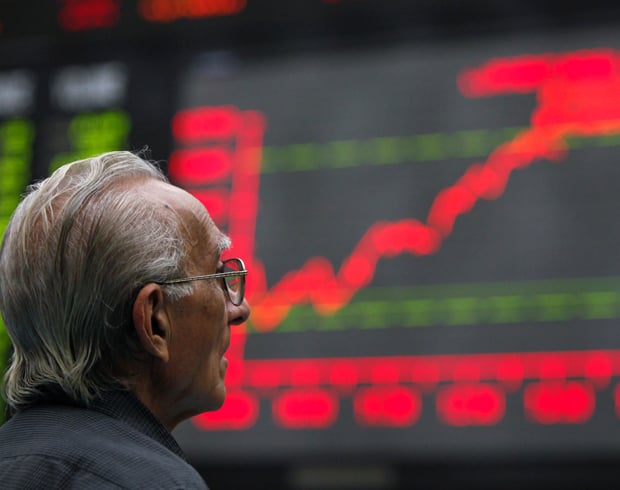Pakistan Stock Exchange Surges 2.5% to Historic High
The PSX's historic high is a testament to the country's potential for economic growth, with the IMF's support and the government's efforts to address key challenges. As the country moves forward, it is crucial to address pressing concerns such as climate change, social issues, and a complex tax system to ensure sustained economic development.

The Pakistan Stock Exchange (PSX) witnessed a remarkable 2.5% surge, reaching an all-time high of 118,442.18 points, driven by optimism about an IMF staff-level agreement and a potential resolution of the circular debt problem. The KSE-100 index gained a significant 2,906 points, fueled by strong investor interest in key sectors such as exploration & production, technology, power, oil marketing companies, and cement.
The IMF's sharing of a draft of the Memorandum of Economic and Financial Policies signaled progress in negotiations, further boosting investor confidence. Additionally, the current account deficit contracted 97% month-on-month to $12 million, and the State Bank's foreign currency reserves rose by $49 million to $11.1 billion. Despite foreign selling, the market maintained its winning streak for six consecutive days, with average trading volumes increasing by 51% and average traded value rising by 43%.
The government's decision to raise profit rates on National Saving Schemes put some pressure on the market, but the index still closed with a 2.5% surge. The benchmark KSE-100 index rose, driven by optimism over a potential staff-level agreement for the release of the second EFF tranche, valued at $1 billion. Trading activity increased, with average daily volumes jumping 50.5% to 507.64 million shares and average daily traded value rising 42.7% to Rs 31.48 billion.
The surge in the Pakistan Stock Exchange is a positive development for the country's economy, and analysts attribute the positive sentiment to the expected staff-level agreement and the IMF's approval of a draft of the Memorandum of Economic and Financial Policies. However, the country still faces challenges such as climate change, social issues, and a complex tax system, which need to be addressed to sustain economic growth.